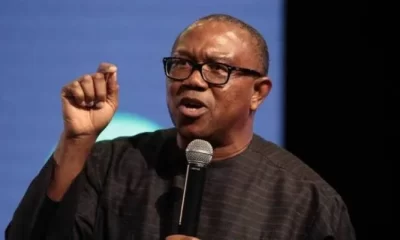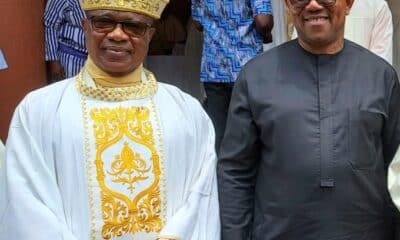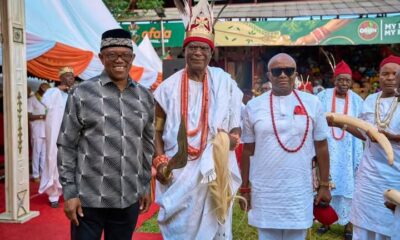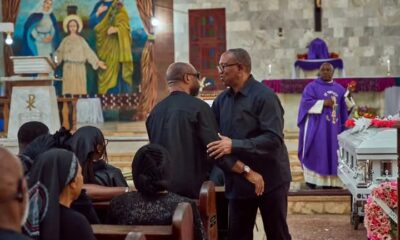The former Governor of Anambra State and Labour Party presidential candidate, Mr. Peter Obi, delivered a keynote address yesterday at the London Business School, hosted by the institution’s Africa Business Club, on the theme: “From Promise to Prosperity: Charting Africa’s Development with Political Will and Vision.”
In his presentation, Mr. Obi argued that Africa’s poverty is not due to a lack of resources, but a consequence of poor leadership and mismanagement of its abundant natural wealth.
“Africa is not poor,” he said during the engagement and Q&A session. “It is poorly managed. We are blessed with about 30% of the world’s known mineral reserves and over 60% of the world’s uncultivated arable land. 60% of global solar energy potential is in Africa, yet we are still talking about energy poverty.”
Mr. Obi highlighted Africa’s demographic advantage, noting that over 60% of the continent’s 1.4 billion people are young and potentially productive. He projected that by 2050, 40% of the world’s youth will be African, describing it as an untapped asset waiting to be unlocked.
Despite this, he lamented that Africa remains home to extreme poverty, insecurity, and high unemployment, which he attributed to a “failure of leadership.”
“While Asia now contributes over 35% of global GDP, Africa contributes less than 3%,” he noted. “This is largely because Asian leadership focuses on education, healthcare, production, and poverty reduction. In Africa, unfortunately, the reverse is often the case.”
To reverse this trend, Mr. Obi advocated for strategic investments in education, health, food security, and poverty alleviation, calling for a redirection of public resources away from wasteful spending toward human capital development.
“Africa doesn’t lack potential,” he stated. “What we lack is purposeful, accountable, and competent leadership.”
He emphasised that if Africa is to move from promise to prosperity, leadership must be grounded in competence, character, capacity, compassion, and integrity.
The event was attended by students, academics, and members of the African diaspora community, and formed part of the Africa Business Club’s ongoing efforts to foster dialogue on Africa’s development trajectory.

 NEWS2 years ago
NEWS2 years ago
 MUSIC4 years ago
MUSIC4 years ago
 MUSIC4 years ago
MUSIC4 years ago
 MUSIC2 years ago
MUSIC2 years ago























